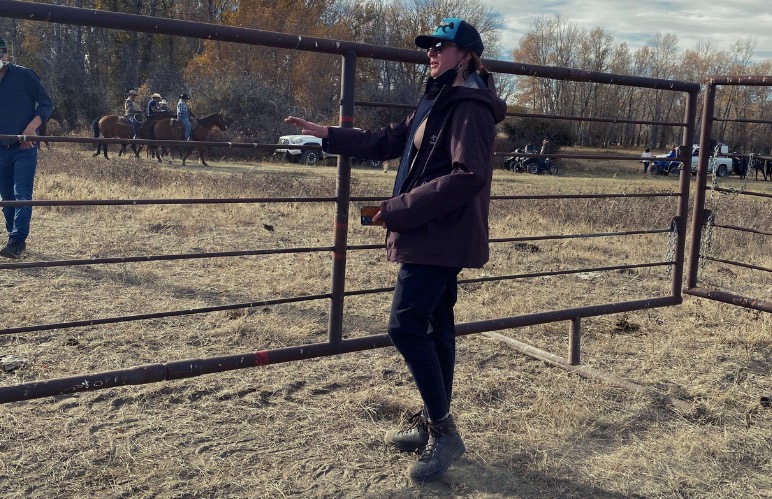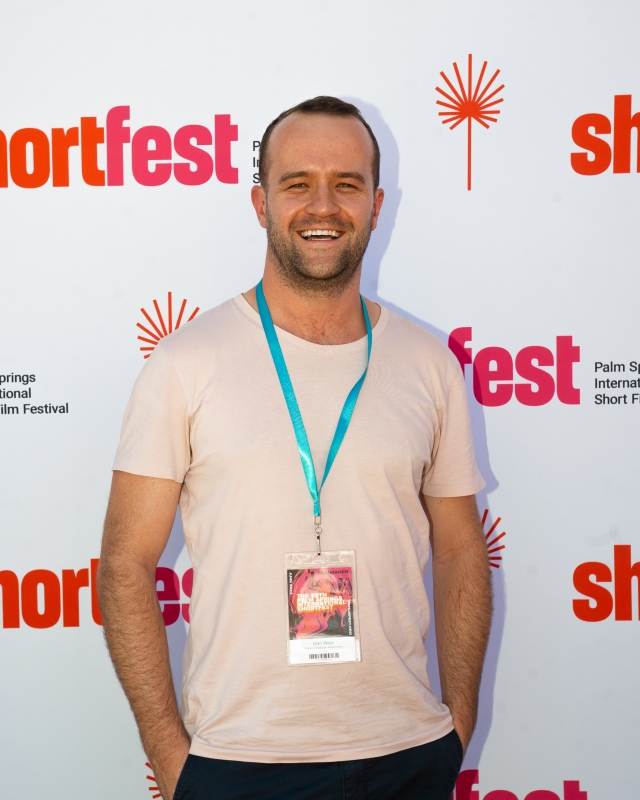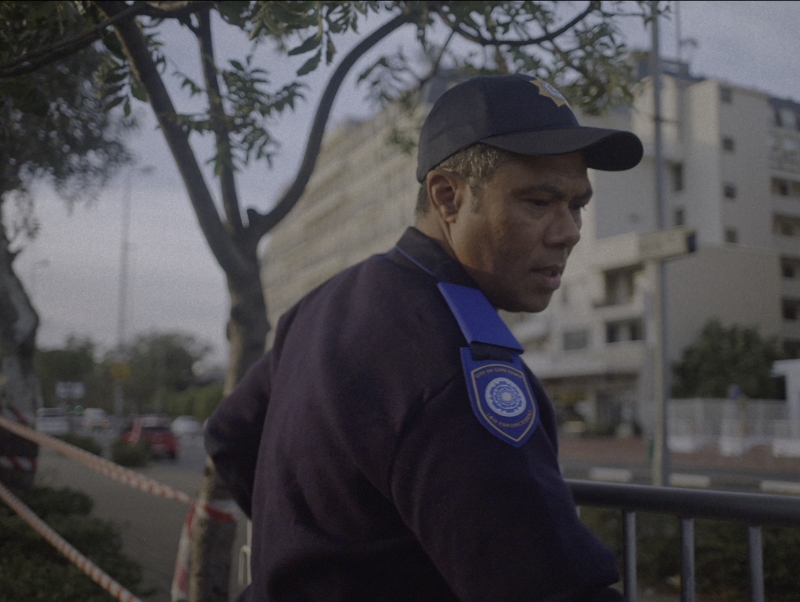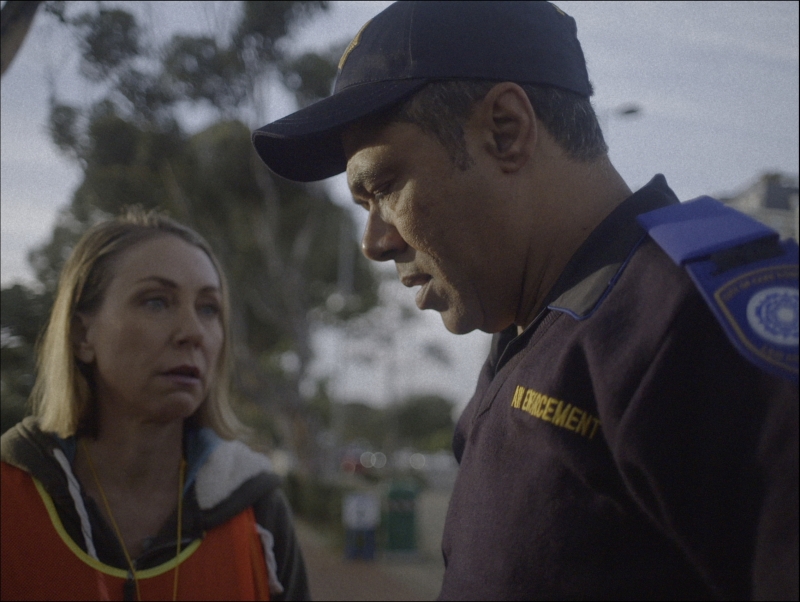Jonathan Light is a New York based actor/director/writer with a post graduate degree in acting from the London Academy of Music and Dramatic Art and an MFA from the TV Writer's Studio in Brooklyn for Writing and Production. After college, he proceeded in his entertainment career in theater and music and as an international script consultant. Throughout his profession, he has worked for various clients making corporate videos, some of which include The College Board, The Julliard School and the American Alpine Club. He has worked as a writer for Yahoo has recently helped begin a New York production venture called Five Four Media.
I spoke with Jonathan during the Toronto Film Festival and American Film Market about his new venture. Here is what he had to say:
What kind of content will Five Four Productions produce?
JONATHAN: The over-arching genre that we strive for is “good.” I’m really trying to make sure that the work we do doesn’t just add to the pile of stuff that’s on the internet or in theaters or wherever, and instead we work on pieces that actually contribute something to the conversation about where we are as humans on this planet. It’s difficult sometimes, because market and financial considerations can get in the way of that goal, which is an unfortunate aspect to this business. So we’re going to have to be smart business people as well, but as we grow and gain the ability to make our decisions, we’re all trying to keep our eye on that goal. But as for genre and style, it’s wide open. Storytelling comes in many forms and I want our company to be engaged in all of them.
What does the name of the company mean symbolically for you?
JONATHAN: I met my partner, Michael Friedman through climbing. When we were just getting started, we went up to climb in a fairly famous area in New York State, which is well-known for its deceptively-graded climbs. We got on a 5.4, which is (allegedly) easy, and ended up having a bit of an adventure. It was probably due to our inexperience more than anything hard about the climb. Luckily we survived, and we can laugh about it today, and we’ve been on much more difficult climbs together with no incidents. So we decided to pay homage to that event through the name of the company.
Because of the difficulty of indie film production today, you said your company will be structured differently than most production companies out there. Can you share about this?
JONATHAN: The biggest roadblock for any creation company today is access to capital. How can you get that first money in? So many production companies today are trying to start their own fund models to act as their own bank, which is a viable path in my opinion, but we want to create a company that does more than just movies and TV, so we are trying to think a bit bigger. What’s one proven way of having access to capital? Being a publicly-traded company. And as it turns out, my partner’s playground is the public markets. I saw him start a company from scratch, in an industry he knew nothing about, take it public almost immediately, and he had a lot of success. So that’s what we’re going to try to do.
JONATHAN CONT'D: We want to be the type of company that investors and family offices will be attracted to if they’re interested in entertainment, so we’re trying to put a premium on quality, smart financing and good decision-making in terms of what gets greenlit. Not only are we going to be as disciplined as any other capital management firm out there when it comes to our criteria for greenlight and our focus on reasonable budgets, but we’re backing up our revenue stream by making sure the IP we develop can be (for lack of a better phrase) exploited through a whole ecosystem of media. This includes AR, VR, mobile apps…all the tech products out there that have been seen as marketing tools could, if developed properly, be created in sync with the “bigger” film or show, and could become an integral part of a rich story-world. And, importantly, there’s always an exit strategy. Whoever is invested can just sell the stock, and their fortunes won’t be tied to one project. And if some projects don’t work out well, we’re creating multiple revenue streams to protect investors.
Is it essential for indie companies to attend festivals and markets like TIFF and AFM?
JONATHAN: Absolutely. Even as an individual, when I was just starting to get into this stuff…I wouldn’t be here or in any position at all to make things happen were it not for my attendance at Berlinale, Cannes, TIFF and AFM. I first attended Berlinale in 2017 and at the time knew only one person at that market, but in just under two years, I’ve developed relationships and made friendships that will last the rest of my life. I’m also incredibly lucky that those friends have been incredibly generous with their time and knowledge, so I've learned more in the last year than I did in grad school. I think the best thing anyone can do for their career, no matter what their discipline, is go to one or all of these festivals – as many as you can afford – get yourself into some parties, attend the conferences, and just be a friendly person who listens and asks questions and genuinely wants to soak up knowledge. It’s fun and you meet incredible people, and you also get to develop your bullshit meter, which is essential.
Did you get some movement forward after attending TIFF?
JONATHAN: There was some decent momentum on the company front in terms of possible financing, but TIFF this year was most noteworthy for a re-connection I made. He’s a fairly well-known director who was almost attached to one of my scripts a few years ago, and I got to meet up and have lunch with him. Somehow he remembered that script, and we’re looking into doing a project together that could go on Five Four’s slate and hopefully be a real prestige piece. It’s really exciting.
In your opinion, is it more difficult than ever to produce indie film today?
JONATHAN: Yes and no. It’s certainly never been easier to just get up and shoot something. I know so many kids who are just making it happen, and it’s fantastic. I wish the digital revolution had been at this stage when I was young and had fewer responsibilities. But if you want to do this for a living, you have to look at it like a business, and like all businesses, it’s only easy if you can find the money. And from what I can see, it’s easier than it’s ever been to get in front of people or organizations with money, but it’s harder because there are a lot of options for financiers and a lot more people trying to do this. So your work has to be excellent, and the numbers and attachments have to all be there, and they have to feel comfortable, and you have to be strategic.
JONATHAN CONT'D: Many people have gotten lucky by following the path of “just make art and the money will come”, but that’s not my experience, and I don’t think it’s viable as a strategy to look at your own little movie as the most important piece of art ever created and believe that someone will just fund it because you’re such a genius storyteller whose work will enlighten the world. Most financiers are in this to make a profit, so in addition to convincing them you’re a genius, you have to prove to them that you won’t piss away their money. And that takes discipline and research and knowledge, and sometimes it requires you taking a step back from your passion project to do something else that’s a bit more commercially viable.
What do you think the future of indie film and series will be?
JONATHAN: See Goldman, William: “Nobody knows anything.” It applies to the indie world as much as it does to Hollywood. I have no idea where all this is going. I hope it doesn’t go away, but I’ve certainly been at drunken parties at TIFF where real veterans are ranting about how we’re all doomed and it’s all over any day now. Are they right? Maybe…they’ve been doing it a while. But then you hear that the markets are going well, and you can’t argue that the quality of some of the independent films coming out today is higher than it’s ever been. And there are more streaming services than ever, and they’re going to need material. (Won’t they??). I think series is in a wonderful place right now, obviously. This golden age seems to be sustaining itself so far. And we’re always going to have independent film – there are too many artists with too much to say about the world for it to just go away, and I think there are always going to be audiences who want to be challenged through stories. I’m actually optimistic that movies are on the upswing because people are missing the idea of stories having an actual ending that’s planned. But who knows? I certainly don’t.
How did you get your start in the film industry?
JONATHAN: I’ve only been in the “industry” for about a year and a half, actually. I was initially going to be an opera singer, but in college I started having some vocal stamina problems and just didn’t want to risk not being trained to do anything else to do with my life. So of course I went for the one field that’s less secure than music, which was acting. I went to London for grad school, learned how to be in the theatre, and came back to New York to do terrible plays in closets while working at a climbing wall and waiting tables. I started writing more too. It was really my starving artist phase. I loved being on the stage and working on plays, although I never really could get any real work, and I really hated acting on camera. If I could have made a living just acting in plays, I would have, but I also wanted a family, and there’s no such thing as a theatre-only actor in the United States who makes enough to live a comfortable life in one place.
JONATHAN CONT'D: But I loved directing, and this was when the first digital film camera came out, and Final Cut had just come out, so I started teaching myself all of that stuff. I ended up freelancing as an editor and got hired full-time at Yahoo.com, where I spent five terrible-but-educational years. I created hundreds of hours of info-newsment crap: shooting, editing and directing sometimes four or five videos a week. We were just ladling gallons of content onto the internet for clicks, mostly financial news and lifestyle stuff, and I was making a decent salary, but was really unhappy, and every time I tried to carve out a more artistic niche in the company, I was met with real roadblocks. The company was just too big, and there was no forward-thinking leadership. Yahoo could have been Netflix before Netflix, but it just wasn’t in the cards. So I decided to go back to school for a writing MFA, part-time so I could keep my job, at the TV Writers Studio in Brooklyn - which was a decent enough program, and helped me really refine my writing. I was planning to get the degree and then stick it out at my job as long as I could – just write scripts in the evenings or whatever – but just as I was graduating, I got canned. It was only four years later that Yahoo ceased to exist as a company, by the way. Just saying. It can’t be a coincidence.
JONATHAN CONT'D: I sometimes think I should have left much earlier on my own and tried to do what I wanted to do, but those golden handcuffs were real, and I had just gotten married, and I got addicted to how easy life was when you’re making a good salary with benefits. Anyway, I decided to just work on corporate media on my own, and I also got hired to write my first screenplay, just out of grad school. It was complete nepotism – an old friend from London who’s now a producer hired me – but it worked, and it kept us going. Then we had our son, and my corporate film business starting taking off…so it wasn’t until just last year that I decided to focus solely on film and TV and getting things produced. Luckily I found an early investor to help cover costs and startup the company, then my partner and I joined forces…and here we are. So I’m lucky.
You are a writer and a producer. Is it difficult to be both a creative and a business man? Or do you find it gives you an edge?
JONATHAN: Both. It’s difficult, and it gives me a bit of an edge. I HATE talking about money, and thinking about money, and worrying about money. My brother used to call me a communist cause I hated capitalism so much. I really just want to create and dream and philosophize…. but the reality is that we live in a capitalist society, and this is a business, and money makes it happen. If you don’t at least acknowledge that and be ready for it, it’s going to be even harder. I’m lucky though: I spent my 20’s learning how to be an artist, and my 30’s learning how to be a businessman, both from the corporate Yahoo world and from running my corporate production company. Now I’m 40, and I’m ready to put it together and create good work. I think people generally respect me for that, although I’m in that weird middle place where I can’t play the rookie card for mentors anymore, but I’m not established yet and am still in need of a bit of mentoring to get to where I want to be.
What will your next project be, if at liberty to discuss?
JONATHAN: There’s an anthology series we’re co-producing with a major gaming brand…nothing’s finalized with financing yet so I can’t say more. And I’m really excited about this project we’re developing with the director I mentioned, even though it’s early stages. There are others in varying stages of development, but we’re still new and are just starting to ramp up for real, so there’s nothing that’s about to be released or anything. Watch this space next year, I guess.
Interview by Vanessa McMahon



















.preview.jpg)





.jpg)



